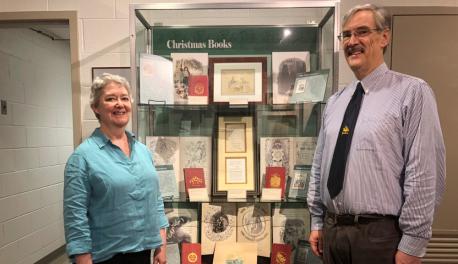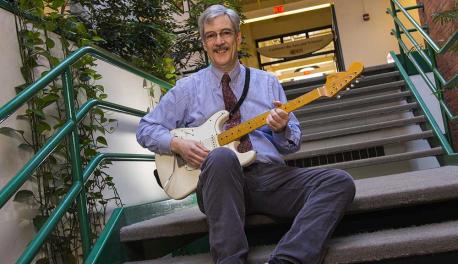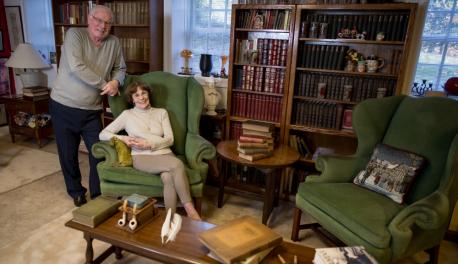

Born in Michigan in 1956, I graduated from the University of Michigan in 1978, earning my PhD at Stanford University in 1985. I have enjoyed teaching British literature at WPI since 1990. I like the intelligence and good work ethic of WPI students; I especially enjoy the opportunity to meet and interact with students in small groups and on an individual basis. The bulk of my scholarly work falls into three principal areas. I work on the Victorian novelist Charles Dickens (1812-1870), on textual scholarship (especially textual editing and manuscript work), and on the American guitarist and composer Jimi Hendrix (1942-1970). I have been studying (and enjoying) Charles Dickens’s life and fiction for 30 years; Dickens was the subject of my PhD dissertation at Stanford University and of my first book as well. I have published a range of articles and reviews treating Dickens in such journals as The Dickensian, Dickens Quarterly, and Dickens Studies Annual, and have contributed articles to the Oxford Companion to Dickens. I have served as trustee, secretary/treasurer, vice president, and president of the Dickens Society. My textual scholarship has primarily focused in two areas: textual editing and manuscript analysis. I have established the text of Dickens’s last complete novel, Our Mutual Friend, and helped to establish the text of key works by the most influential 19th-century writer of nonfiction prose, Thomas Carlyle, for the California Carlyle edition. I have worked with the literary manuscripts of many important writers, especially Dickens; close analysis of the complex tangle of interlineations and deletions in his manuscripts reveals a great deal about his artistic intentions and achievements.

Born in Michigan in 1956, I graduated from the University of Michigan in 1978, earning my PhD at Stanford University in 1985. I have enjoyed teaching British literature at WPI since 1990. I like the intelligence and good work ethic of WPI students; I especially enjoy the opportunity to meet and interact with students in small groups and on an individual basis. The bulk of my scholarly work falls into three principal areas. I work on the Victorian novelist Charles Dickens (1812-1870), on textual scholarship (especially textual editing and manuscript work), and on the American guitarist and composer Jimi Hendrix (1942-1970). I have been studying (and enjoying) Charles Dickens’s life and fiction for 30 years; Dickens was the subject of my PhD dissertation at Stanford University and of my first book as well. I have published a range of articles and reviews treating Dickens in such journals as The Dickensian, Dickens Quarterly, and Dickens Studies Annual, and have contributed articles to the Oxford Companion to Dickens. I have served as trustee, secretary/treasurer, vice president, and president of the Dickens Society. My textual scholarship has primarily focused in two areas: textual editing and manuscript analysis. I have established the text of Dickens’s last complete novel, Our Mutual Friend, and helped to establish the text of key works by the most influential 19th-century writer of nonfiction prose, Thomas Carlyle, for the California Carlyle edition. I have worked with the literary manuscripts of many important writers, especially Dickens; close analysis of the complex tangle of interlineations and deletions in his manuscripts reveals a great deal about his artistic intentions and achievements.
Scholarly Work
Little Dorrit 2002
Illustrating Dickens 2002
Past and Present 2005



